#gauvain
Text


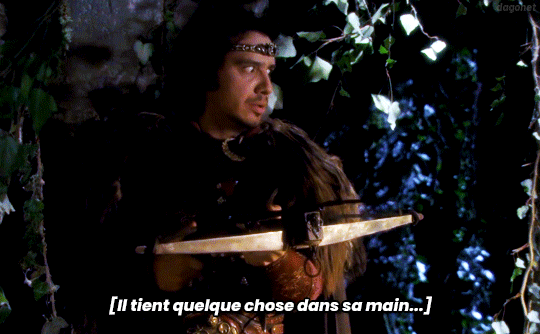
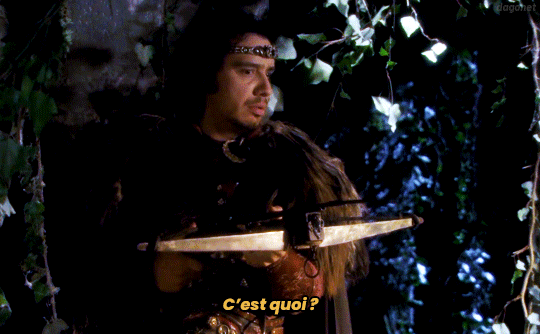
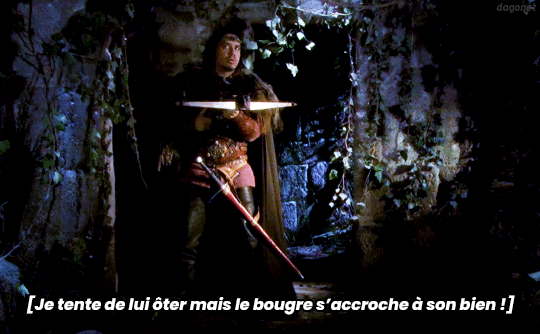

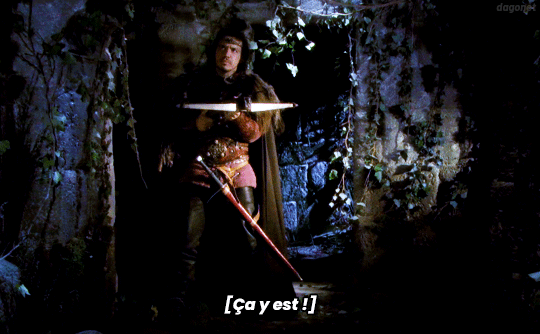
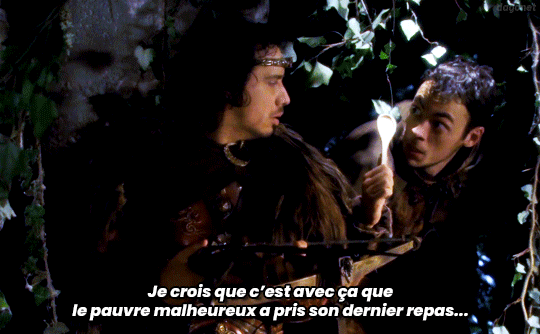

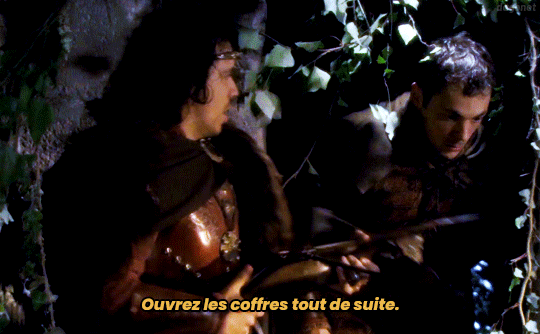



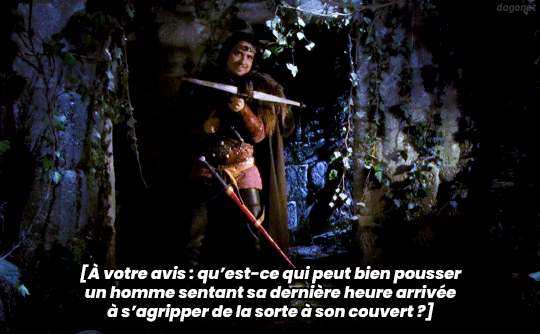
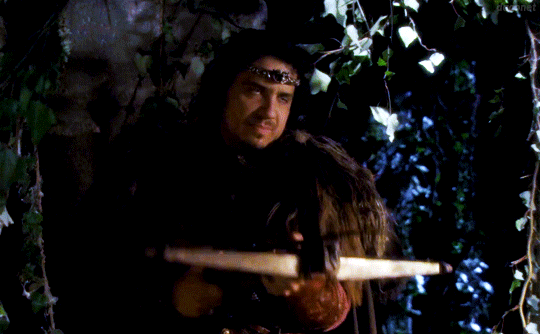
Kaamelott, Livre II, Le Guet
#j'adore la théâtralité de cette scène j'étais obligée de la giffer en entier...#kaamelott#arthur#alexandre astier#aurélien portehaut#gauvain#série#KT L02E90
79 notes
·
View notes
Text
Y'a une choré sur just dance avec une abeille et une fleur et je peux pas m'empêcher de penser à Yvain et Gauvain en train de mettre toute leur âme là dedans pour avoir 5 étoiles
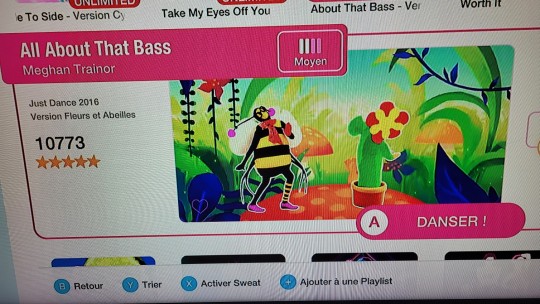
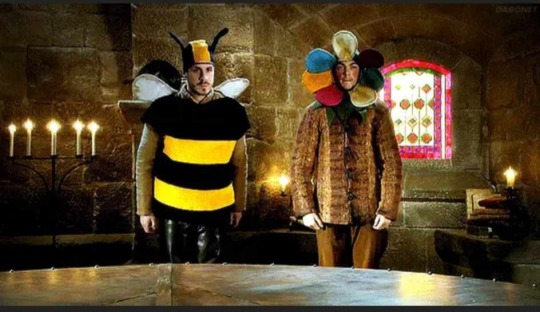
166 notes
·
View notes
Text
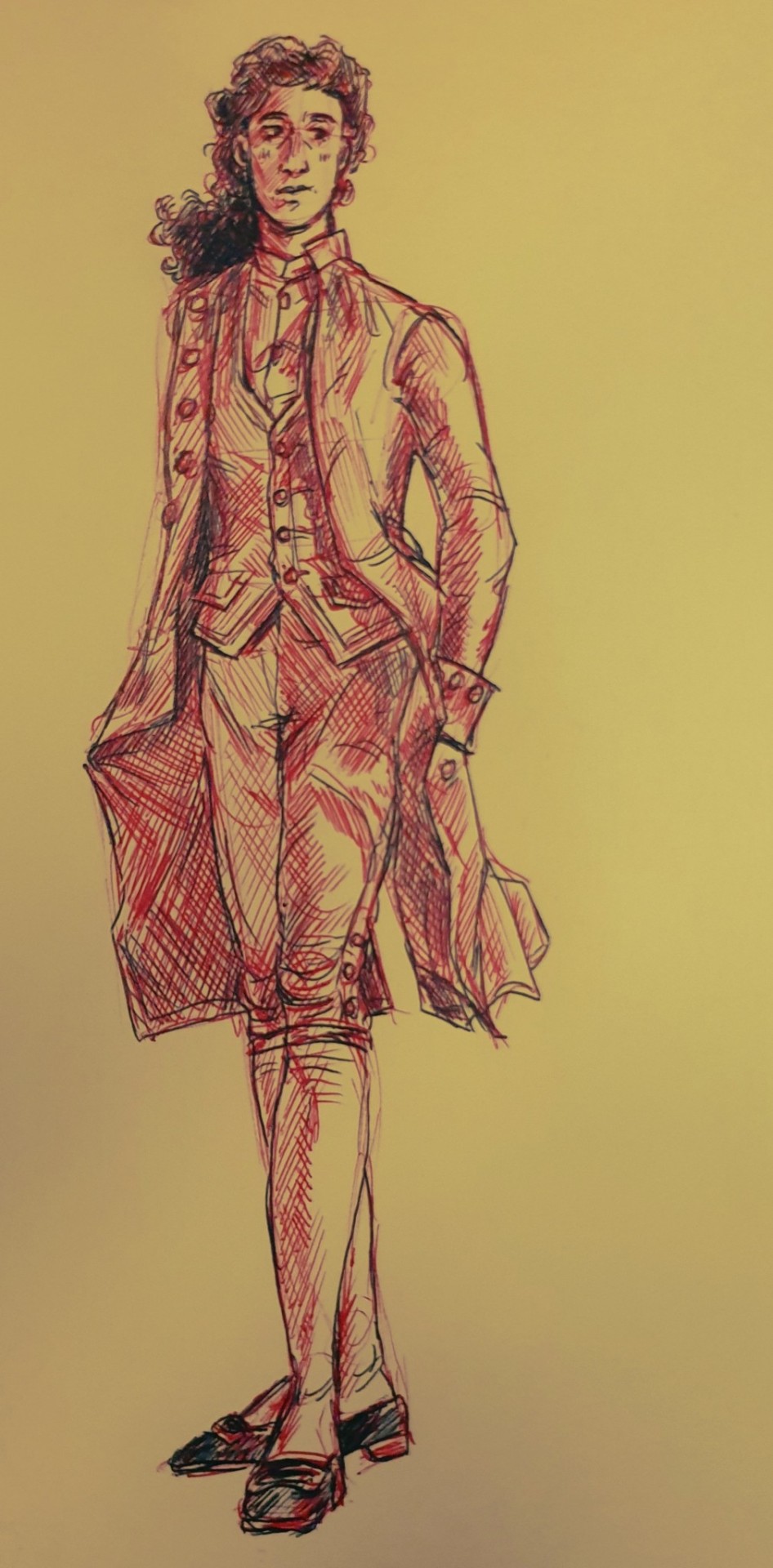
Haven't put pen to paper in a while.
#My art#93#Quatrevingt-treize#QVT#Gauvain#Quite literally pen and paper. I have no other art supplies on hand.
12 notes
·
View notes
Text
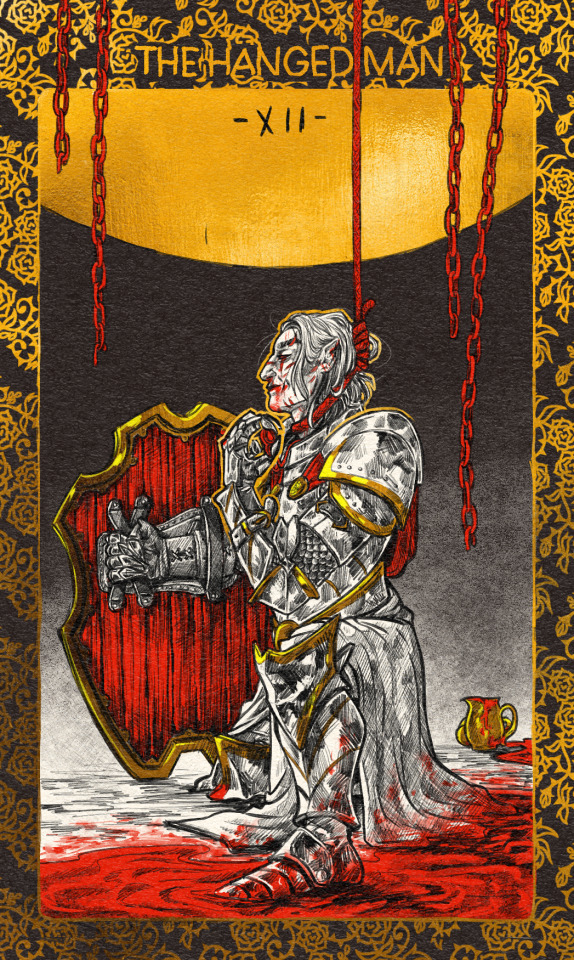

Another set of cards that are actually a pair. Ysolde and Gauvain as The Hanged Man and The Star.
Ysolde is a baroness but also high priestess and Gauvain is her personal guard. I love these two. They are the perfect himboXbimbo pair. Like... Gauvain is literally looking for the perfect spot to die for her and Ysolde is desperately trying to stop him from doing so on a regular basis. Both are kinda dumb in their very individual and specific way, too, which I absolutely adore.
I just know that these two would give the best hugs ever.
#Tarot#The Hanged Man#The Star#dnd#homebrew campaign#Gilliarda#Lady Ysolde Acroux#Gauvain#just Gauvain#NPCs#OCs#my children#I want to hug them both
31 notes
·
View notes
Text
Am I the only one who thinks that Gauvain bears a striking resemblance to Eugene/Flynn rider?
I mean, in attitude as much as in looks.
They both have the same kind of humor and tend to act very much alike, they both seem disinterested but care about and protect the ones they love while being honest and funny.
In short, I love Gauvain and Eugene/Flynn Rider and I just thought they looked alike.
#Them have the same aesthetic too#merlin fandom#bbc merlin#gauvain#gwaine#merwaine#Merlin and gwaine friendship#Flynn rider#eugene fitzherbert#rapunzel#tangled#Yeah i'm lesbian but I love them so much#Just like man them was so hot#and funny
12 notes
·
View notes
Text
New ἀλέξω memes
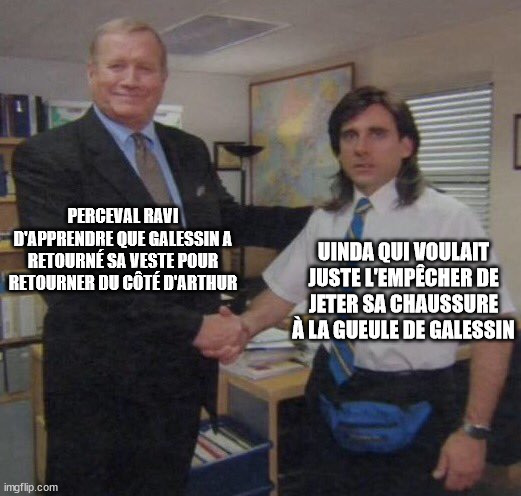

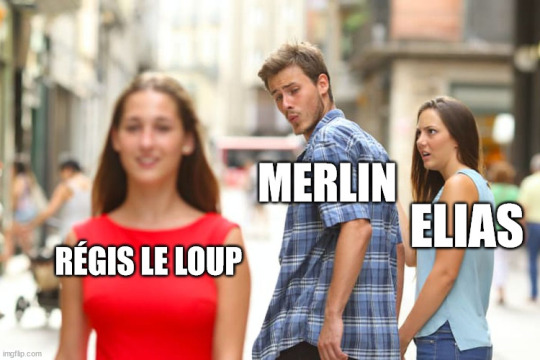




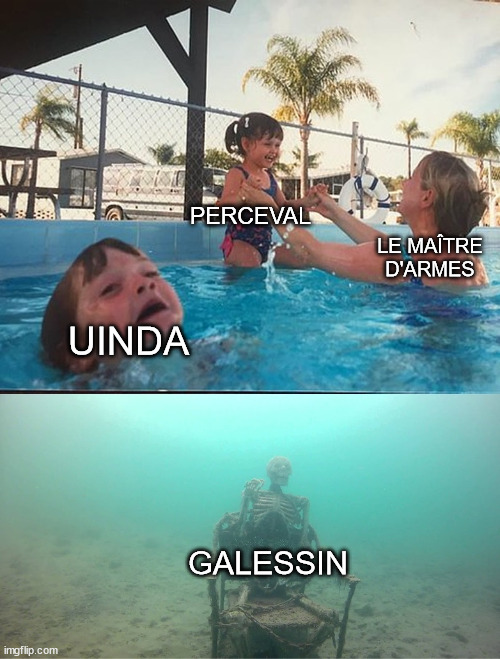

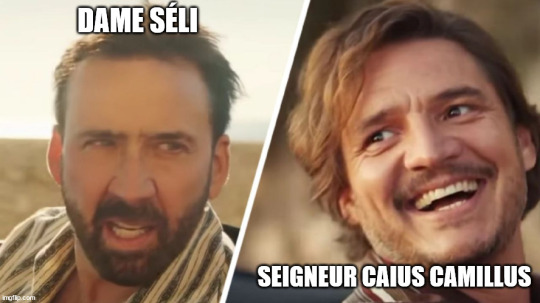
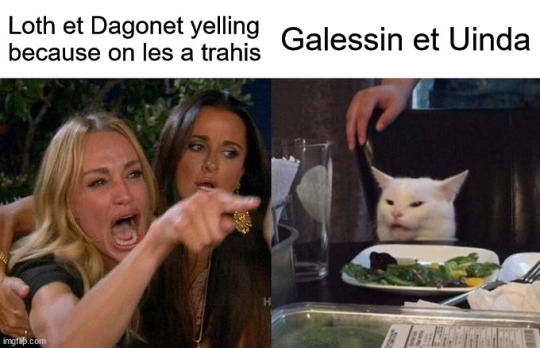



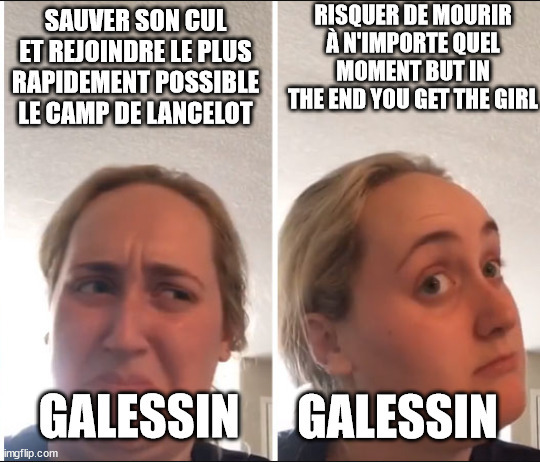
#kaamelott#kt fic#infragilis e#galessin#uinda#loth#perceval#le maître d'armes#arthur pendragon#venec#dame séli#caius#dagonet#léodagan#régis le loup#merlin#elias#yvain#gauvain#kt meme
23 notes
·
View notes
Photo

Character poster of Kobayashi Ryota as Gauvain
#la legende du roi arthur#la légende du roi arthur#le roi arthur#king arthur musical#キングアーサー#japan#kobayashi ryota#gauvain#photo
80 notes
·
View notes
Text
#this is all dude but don't worry!!!! i have my girlbosses and pathetic wet shecats too!!!#if this gets enough traction i may even do another post who knows#lancelot#gauvain#gawain#marie de france#marie of france#vulgate cycle#arthurian romance#arthuriana#medieval literature#medieval lays#medieval romance#saints lives#medieval saints lives#saint katherine#saint catharine#saint catherine#ok that's enough spellings of her jeez#galehaut#apparently the internet agrees with me it should be galehaut#le bel inconnu#guigemar#lanval
31 notes
·
View notes
Photo

Gauvain son of King Lot, Chivalric romances (Chrétien de Troyes)
95 notes
·
View notes
Text
ça m’a pris un peu de temps mais genre. eux.
21 notes
·
View notes
Text
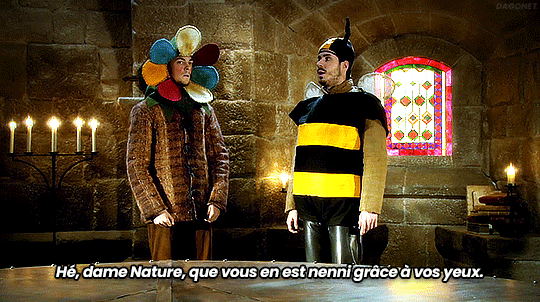
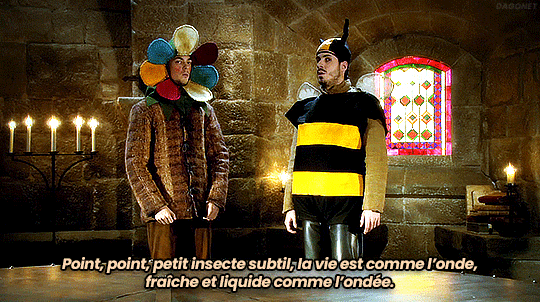
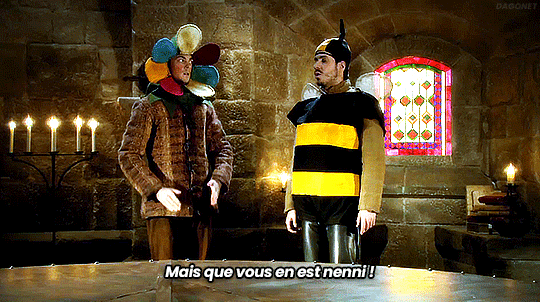


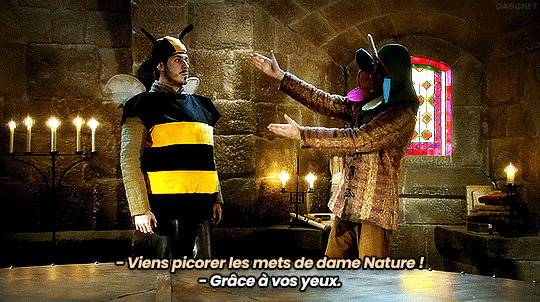
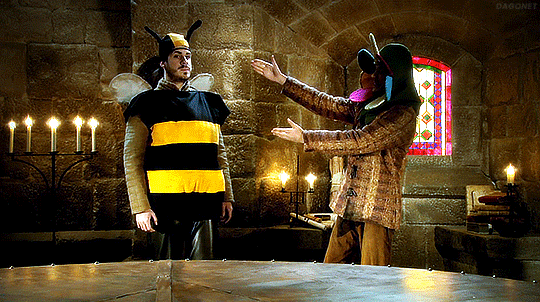
Kaamelott, Livre II, La fête du printemps
73 notes
·
View notes
Text
J'avais 2h de trou à combler, je me suis amusée à faire ça 👀
87 notes
·
View notes
Text
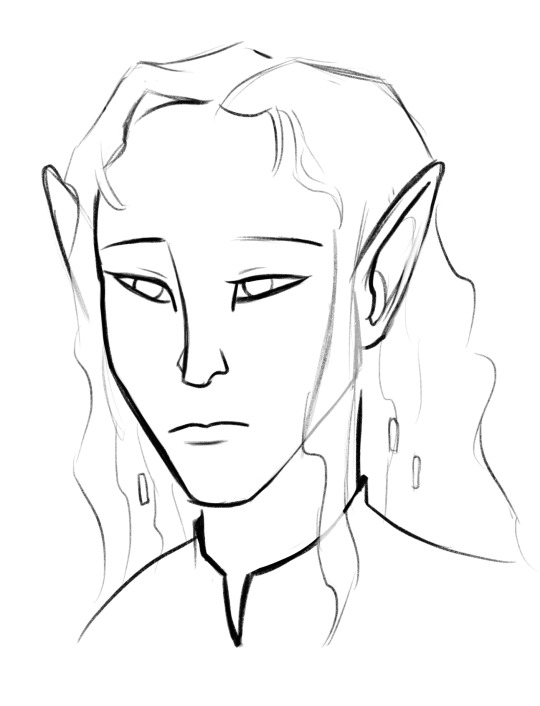
Day 356
#Day 356#~#35 Minutes#Gauvain#Total guess because I forgot to record time before rendering on my own time#Def less than 1 hour but that's all I'm sure of#Refing real people a bit lately but I couldn't ref a hairline from the pic I used and it shows kjenrjkhn#I continue to try and get the right vibe for Gauvain
4 notes
·
View notes
Text
My JP Presentation on Hugo’s Ninety-Three
Where I am currently studying, a JP, or junior project, is a presentation required of undergraduates in the third year. Basically we pick a book (sufficiently haloed) to do what is we call a glorified book report, and then a panel of professors roasts the presenting student with while other students watch and get entertained. Below is my presentation. Unfortunately there is no record of the professor’s questions, but I’ll just say that the one I did not expect was whether Cimourdain’s ethics were more Kantian or Aristotelian (although I did bring up Kant’s categorical imperative at some point earlier in the questioning so I was kind of asking for it). Anyway, I’ve been in love with Ninety-Three ever since I first read it in 2021, and I actually have always intended to write a character analysis on tumblr. So here it is some three years later, and I hope that someone out there will be interested.
Professors, friends, and esteemed guests,
I have the honour to present to you today an unparalleled book: Ninety-Three by Mr. Victor Hugo, whom we all recognise as a giant—not just of French letters, but of the world. To our great shame, although other works by Mr. Hugo are frequently read today, Ninety-Three, his last novel, has been largely forgotten; indeed, at this present moment no reputable publishing company is printing it in the English language.
I am here for the express purpose of reviving Anglophone interest in Ninety-Three. I consider this book a work of French Romanticism par excellence, for several reasons. First, it is an exercise of Hugo's literary theory, set forth as early as 1827 in the Preface to Cromwell, though never until now so perfectly demonstrated; second, in it we see the author’s reflections on a momentous point in history, the French Revolution, itself full of dramatic and philosophical potential. Additionally, the book is well-paced— which is perhaps the most difficult achievement of all for a work of this author. In sum, this book has everything that is required for a novel to ascend to the literary pantheon of the western canon: it has drama; it has depth; it is entertaining; it is true. Let us hasten, then, to place it where it deserves to be.
To understand the genius of Ninety-Three, one must understand the symbolic significance of its characters. But before I go any further, let us provide a general idea of the plot. In one sentence, it is a tale of the struggle between republicans and royalists in the Vendée (that is, Brittany), during the height of the Reign of Terror—hence the name, which is short for Seventeen Ninety-Three. Hugo divides the novel into three parts: At Sea, In Paris, and In la Vendée.
The story begins with a sort of prologue, an encounter between the republican Battalion of the Bonnet-Rouge and a Briton peasant woman and her three children, who are fleeing the war. They are quickly adopted by the battalion. We shall soon see why they are important. For the present our attention is redirected to the island of Jersey, an English possession, where a French royalist crew is preparing for a secret expedition. An old man boards the ship. He is in peasant dress, but by his demeanor seems to be an aristocrat. In the rest of At Sea we become acquainted with this jolly royalist crew—only to see them all perish in a naval battle before they ever reach the coast of France. Yet the old man escapes with the sailor Halmalo, and they land in Brittany in a little rowboat. He sends Halmalo off to rouse a general insurrection. Then, upon reading a placard, learns that his presence in Brittany has been known, and that someone named Gauvain is hunting him down, which sends him into a shock. Despite his dire situation, our protagonist is recognised by an old beggar named Tellemarch, who conceals him. We discover that he is none other than the Marquis de Lantenac, Prince in Brittany, coming back to lead the rebellion.
In the second part, In Paris, we are introduced to another character: Cimourdain. Cimourdain is a revolutionary priest, a man of iron will, with one weakness only: his affection for a pupil he had long ago, who was the grand-nephew of a great lord. At this period, however, Cimourdain dedicated himself completely to the revolution. Such was his formidable reputation that Cimourdain was able to intrude upon a meeting of the three terrible revolutionary men, Danton, Marat, and Robespierre, and cause his opinion to prevail among them. Robespierre then appoints Cimourdain as a delegate of the Committee of Public Safety, and sends him off to deal with the situation in Vendée. He is told that his mission is to watch a young commander, a ci-devant noble, named Gauvain. This name also sends Cimourdain into a shock.
Gauvain, in fact, is none other than the grand-nephew of the Marquis de Lantenac, in whose household the priest Cimourdain had been employed. Although they have not met for many years, there is a close bond between the master and pupil, and both adhere to the same revolutionary ideal. Hugo has set the stage. In the last part, In la Vendée, these epic forces are hurled against each other in the siege of the Gauvain family’s ancestral castle, La Tourgue. On the one side, we have the republican besiegers, Gauvain and Cimourdain, and on the other, the Marquis de Lantenac and his Briton warriors, the besieged. The Marquis has one last card to play: he has, as hostages, the children of the Battalion of the Bonnet-Rouge. For the safety of his party, he offers the life of the three children, whom he has placed in the chatelet adjoining the castle of La Tourgue, which will be burned upon attack. The republicans refuse. The siege begins, bloody for the republicans, hopeless for the royalists. At the last moment, by a stroke of fate the royalists contrive to escape, leaving behind an exasperated republican army, and a burning house. The republicans try to rescue the children, but find this impossible, as they can neither scale the walls of the chatelet, nor open the iron door that leads to it. As this is happening, the Marquis hears the desperate cries of the mother in the distance. Beyond all expectation, he returns, opens the door with his key, steps into the fire, and saves the children. Thereupon he is seized by Cimourdain, who proclaims that Lantenac will be promptly guillotined. Yet unbeknownst to Cimourdain, Lantenac’s heroic act of self-sacrifice set off a crisis of conscience in the gentle Gauvain, who fought for the republic of mercy, not the republic of vengeance. The final battle takes place in the human heart.
I will not divulge the ending. Already we can see that these characters are at once human, and more than human. “The stage is an optical point,” says Hugo in the Preface to Cromwell, “Everything that exists in the world—in history, in life, in man—should be and can be reflected therein, but under the magic wand of art.” Men assume gigantic proportions. They become ideas. The three central characters each represent a force. In the lights and shadows of their souls, we have symbols of the lights and shadows of a whole age. The fifteen centuries of feudalism, the Bourbon monarchy, the France of the past, when condensed into an object is the looming castle La Tourgue, and when incarnate is Lantenac. The twelve months of the revolutionary terror, the Committee of Public Safety, the France of the moment, is as an object the guillotine, as a man Cimoudain. The immense future is Gauvain. Lantenac is old; Cimourdain middle-aged; Gauvain young.
Let us look at each of these characters in turn.
I admit that Lantenac is my favourite character. In his human aspect he is impressive, and very compellingly written. Almost immediately upon introduction, he manifests a ferocious justice in the affair of Halmalo’s brother, a gunner who endangered the whole ship by his neglect, and who saved it in a terrifying struggle between vis et vir, between an invincible brass carronade and frail humanity. Lantenac awarded this man the Cross of Saint-Louis, and then had him shot. To the vengeful Halmalo, his justification is this: “As for me, I did my duty, first in saving your brother’s life, and then in taking it from him [...] He has failed his duty; I have not failed mine.” This episode sums up Lantenac’s character. True to life and true to the principle of romantic drama, Lantenac contains both the grotesque and the sublime, sometimes even in the same action. Like the Cromwell that inspired in posterity such horror and admiration, he shoots women, but saves children. He martyrs others, but is at every point prepared to be the martyr.
As an idea he is the ultimate embodiment of the Ancien Régime. Though himself unpretentious, Lantenac is perfectly aware of the role he must play. He demonstrates perfectly, unlike conventional aristocrats in literature, the principle of noblesse oblige and the justice of the suum cuique. He believes that he is the representative of divine right, not out of arrogance, but as a matter of fact. “This is the question,” he tells Gauvain in their first and last interview, “to be a Great Kingdom, to be the ancient France, [is] to be this magnificent land of system [...] There was something fine and noble in this system. You have destroyed it [...] like the miserable ignoramuses you are [...] Go! Do your work! Be the new man! Become pygmies! [...] But leave us great.” The force which animates Lantenac is his duty, merciless, towards the old monarchical order—until the principle was overcome by the man, who was still able to be moved by helpless innocence.
The first thing that Hugo felt it was necessary to know about Cimourdain is that he is a priest. “He had been a priest, which is a solemn thing. Man may have, like the sky, a dark and impenetrable serenity; that something should have caused the night to fall in his soul is all that is required. [...] Cimourdain was full of virtues and truth, but they shine out against a dark background.” There is an admirable purity about him: it is symbolic that we always see him rushing into the thick of battle, but never firing his weapon. He aids the poor, relieves the suffering, dresses the wounded. By his virtues he seems Christlike, but unlike Christ, his is an icy virtue, the virtue of duty, not love; a justice which knows not mercy—“the blind certainty of an arrow,” which imparts to this sublimity a touch of the ridiculous. It is a short step from greatness to madness. Still, there remains some humanity in Cimourdain, on account of his love for Gauvain. Through this love that he is able to live, as a man, and not merely as the mechanical execution of an idea.
On the surface Cimourdain has renounced his priesthood. But, Hugo reminds us, “once a priest, always a priest.” He is still a priest, but a priest of the Revolution, which he believes to have come from God. There is a similarity between Cimourdain and Lantenac, though they are on the two diametrically opposed sides of the revolution. Both are bound by duty to their cause. Both are ferocious. When Robespierre commissioned Cimourdain, he answered: “Yes, I accept. Terror against terror, Lantenac is cruel. I shall be cruel. War to the death against this man. I will deliver the Republic from him, so it please God." Quite appropriately he is represented by the image of the axe—realised in the guillotine erected in the final chapter. As with Lantenac, the Cimourdain of relentless revolutionary justice eventually finds himself face to face with the human Cimourdain, the spiritual father of Gauvain, the embodiment of mercy.
Gauvain at a glance seems to be a character of simple conception: his defining characteristic is an almost angelic goodness. He is also the pivotal point in the story: on one hand, he is the son of Cimourdain, a republican, and on the other, he is the son of the Gauvain family, Lantenac’s heir. Through him, we are reminded that the Vendée is a fratricidal war. Allusions abound in the novel, for example, when Cimourdain declared his brotherhood with the royalist resistors, a voice, implied to be Lantenac’s, answered, “Yes, Cain.” Gauvain finds himself caught in the middle of such a frightful war. At first, he was able to overlook his kinship with Lantenac, on account of the older man’s monstrosities, but with Lantenac redeemed by his self-sacrifice, it becomes impossible to ignore his threefold obligation: to family, to nation, and to humanity. It is because of this that duty, which seemed so plain to Cimourdain, rose “complex, varied, and tortuous” before Gauvain. The fact is, far from being simple, Gauvain's goodness is neither effortless nor plain, and we are reminded that the most colossal battles of nobility against complacency often happen in the most sensitive of consciences.
Indeed, the triumph of Gauvain is a triumph of the moral conscience, the light which is said to come from the great Unknown, over the dismal times of revolution and internecine strife, “in the midst of the conflagration of all enmity and all vengeance, [...] at that instant [...] when everything becomes a projectile [...], when [...] justice, honesty, and truth are lost sight of [...]” To Hugo, the Revolution is a tempest, in the midst of which we find its tragic actors, forbidding figures as Cimourdain, Lantenac, and the delegates of the Convention, some supremely sublime, some utterly grotesque, and many both: “a pile of heroes, a herd of cowards.” But, at the same time, “The eternal serenity does not suffer from these north winds. Above Revolutions, Truth and Justice reign, as the starry heavens above the tempest.” Gauvain finally comes to peace with this realisation, and we hear him saying, “Moreover, what is the tempest to me, if I have the compass? And what difference can events make to me, if I have my conscience?”
But Ninety-Three is, after all, a tragic book. We might ask whether it is not the case that Gauvain is too much of an idealist. He wishes to found a Republic of Intellect, where perpetual peace eliminates all war, and where man, having passed through the instruction of family, master, country, and humanity, finally arrives at God. “Gauvain, come back to earth,” says Cimourdain. To this Gauvain cannot make a reply. He can only point us upwards, by self-denial, and by his love, towards the ideal.
And the task of the novel is no more than this, this reminder of the reality of life. The drama was created, as the Preface to Cromwell declares, “On the day when Christianity said to man: ‘Thou art [...] made up of two beings, one perishable, the other immortal, [...] one enslaved by appetites, cravings and passions, the other borne aloft on the wings of enthusiasm and reverie—in a word, the one always stooping toward the earth, its mother, the other always darting up toward heaven, its fatherland.’” And did not Ninety-Three achieve this? The legend of La Vendée, like the stage, takes crude history and distills from it reality. Let us conclude with this passage from the novel itself:
“Still, history and legend have the same end, depicting [the] man eternal in the man of the passing moment.”
#victor hugo#ninety-three#quatrevingt-treize#1793#reign of terror#vendée#romanticism#essay#lantenac#gauvain#cimourdain#in an earlier draft I also compared Gauvain to Alyosha Karamazov in a passing comment but I had to take that out for the sake of time#also Cimourdain is definitely a Kantian but doesn’t seem that Hugo approves of Kantian ethics#on the other hand Hugo isn’t Aristotelian either#because in his works reason and the passions are always diametrically opposed#whereas Aristotle / St Thomas would have said that the passions could be trained by reason
4 notes
·
View notes
Text
Kaamelott incorrect quotes:
Alternative responses to "I love you"
Léodagan : A horrible decision really.
Arthur : I'm sorry.
Lancelot : I know.
Gauvain : Thanks.
Bohort : *laughs nervously*
Calogrenant : *finger guns*
Galessin : If only there was someone out there who loved you.
Blaise : *laughs hysterically*
Mevanwi : Who doesn't?
Yvain : YEEEEET
Karadoc : Why?
#kaamelott#galessin#arthur pendragon#gauvain#léodagan#bohort#yvain#lancelot#calogrenant#père blaise#mevanwi#karadoc
21 notes
·
View notes
Text
Gauvain and Yvain recognizing each other on the battlefield and going « I am defeated. » « No, I am defeated. » « Shut up, I already said that I am defeated. » « Well, I don’t accept that, because I say that I am defeated!! » while Arthur is looking from one to the other with the biggest smirk is exactly what I ask of classic literature
#chretien de troyes#yvain#sir yvain#gauvain#sir gawain#king arthur#the knights of the round table#middle ages#sir ivan#gawain#i ship it
4 notes
·
View notes